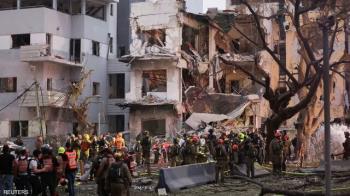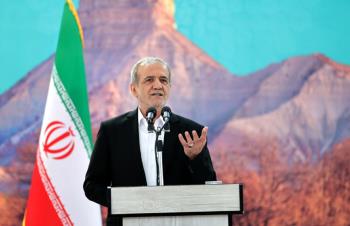Alwaght- After formation of the National Unity government in Afghanistan there were hopes that political, economic and security conditions would improve, and the deeply-divided country would meet stability and peace. However, some sectarian, political, and party conflicts have pushed the Afghan community towards polarization. At the same time the US has seized the moment using the critical conditions of the country, imposing the US-Afghanistan Security Pact on Afghanistan’s national unity government, an agreement authorizing long-term US presence in the country. Exaggerating the risk of Taliban and their probable control over the country as well as propagating the likeliness and risk of a civil war in Afghanistan, the US managed to push afghan officials to sign security pact. Soon and a day after declaring the final election's results the agreement was signed by the Afghan President Ashraf Ghani and the Chief Executive Officer of Afghanistan Abdullah Abdullah.
Indeed, the US and NATO have chosen to be ambiguous in their policies on fighting terrorism, reconstruction of the country, development and security issues, and even the peace talks. These vague policies and its covert and even overt aids to Taliban have led to maintenance of insecurity and instability in the country. It seems that during the past years, Westerners has failed so far to limit or control Pakistan’s role in Afghanistan, as they are granting Islamabad some privileges in order to turn their failures and shortcomings into victories and freely implement its plans across West Asia.
On the other hand, Pakistan sees integrity and security of its sovereignty tied to the absence of a powerful Afghan government. Indeed, it is feared that Taliban different fractions join together in Afghanistan, an issue that in case of happening would provoke the sectarian minorities to fight back in order to prevent Taliban from regaining power in Afghanistan. In such a situation the Afghanistan’s security chiefs would probably leave Afghan army to join tribal forces fighting Taliban.
Before his visit to the US, Ashraf Ghani has acknowledged for the first time that the ISIS terrorist group, which is mostly centering in Iraq and Syria, has penetrated his country, highlighting that the threat of this terrorist group to his country should not be ignored. Afghanistan’s president added that fighting against ISIS will be soon, and it would happen in the spring. The however, some political experts believe that Ashraf Ghani has mentioned the threat of ISIS’s presence in his country to slow the process of US forces withdrawal. Besides, Pakistan has been fighting the Taliban inside its borders, pushing them out of the country and to Afghanistan, where due to lack of a powerful government they can reorganize themselves. Meanwhile, reports suggest that some of the Taliban leaders who are fighting the country's government have pledged allegiance to ISIS.
Warnings over Afghanistan’s situation are realistic and must be taken into consideration, however, it should be noted that the US and its Western allies have had an essential role in creation and development of the Taliban, as they are responsible for the miserable conditions currently raging in Afghanistan. Actually, a weak Afghan government secures the US and generally Western countries' interests. Propagandistic measures of reconstructing Afghanistan and restoring security and peace to the country, as well as intimidating Afghans with return of the Taliban to power provided the ground for the US to push Afghanistan’s political parties, senate, parliament, and even people to sign the security deal with the US administration, allowing the US forces to remain in the country for a longer period of time.
During the past years Afghanistan has suffered many damages. To stop this, large numbers of Afghans participated in presidential election in order to determine their political affairs. However, the outcome of the elections was a government crippled by weakness, uncertainty that has a variety of challenges ahead. Multiplicity of the political players and their competition, sectarian and political conflicts are among items that hamper the national government's efficiency. President Ghani’s lean towards establishing ties with Pakistan or supporting the Saudi-led Arab coalition’s aggression on Yemen as well as overemphasizing negotiation with Taliban as his government’s priority for achieving peace and security in the country, indicate the ambiguities and challenges of the foreign policy of Afghanistan’s unity government. Reacting to the President’s speech on Yemen war, the speaker of Afghanistan’s parliament Abdul Rauf Rahim has called the supportive remarks of Ashraf Ghani over Saudi aggression on Yemen as irresponsible, asking the government to determine the main lines of its foreign policy and send them to the national parliament for debate to prevent remarks of this kind.
So far, the West has not presented an obvious and effective strategy for Afghanistan, especially for the time after the withdrawal of the American and NATO’s forces while the Western military institutions, have frequently warned of a rise in the activity of the insurgent groups. Perhaps following an uncertain and vague policy in Afghanistan is a decision made to design a new strategy, using the current poorly-controled conditions in Afghanistan and its geographical location. Due to the fact that Afghanistan’s developments are not separate from West Asian and global conditions, and actually the country is affected by international events, It is likely that the West and its regional allies such as Saudi Arabia intend to strengthen some Takfiri and terrorist groups like ISIS in Afghanistan, Pakistan and some other parts of West Asia to compensate for the heavy losses they suffered in Syria and Iraq. The West is even looking to have the same design for Iran’s Southeastern border areas.
Since their rise in Iraq and Syria, Takfiri and terrorist groups such as ISIS have claimed that they see no limit for their activities and terrorist attacks. ISIS main goal is to create a state under Caliph in Muslim-majority lands. The ISIS group has turned its attention to countries like Afghanistan and Pakistan, where there are weak and crippled central governments, and the social conditions are more accrediting and proper for the group to proceed toward its plans.
Broadcasting the news of ISIS rise in Afghanistan by some Western media, and the afghan unity government's incomplete cabinet, spur the ISIS terrorist group to exploit the vacuum to press ahead and impose security threats on the country that could be several times more devastating than threats imposed by the Taliban.
Conclusively, it seems that the West is struggling to curb Taliban through peace talks and persuading Kabul and Islamabad to put an end to its long-term issue in order to replace Taliban with the newly-made and energetic ISIS terrorist group, an alternative for the extremist groups in Afghanistan which would likely stay active for next ten years.
However, historically, the Afghans along with their government have proved their ability and potentials to confront and deter security perils, and this is a point highlighting the need for the new government headed by Ashraf Ghani and Abdullah Abdullah to prevent the West’s acting against their interests as well as jeopardizing their national security further. More deterioration of the security circumstances in Afghanistan, beside being risky to the country itself and regional countries, could, in the upcoming years, hit the countries that created and facilitated ISIS’s growth.


























